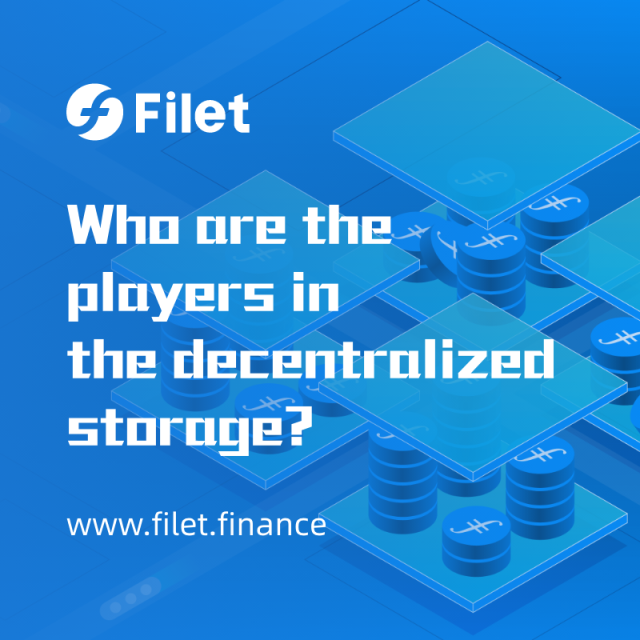The Metaverse is undoubtedly the hottest area at the moment. Social giant Facebook resolutely changed its “face” and renamed it “Meta”, other technology giants such as Tencent, Google, ByteDance, Microsoft, and Baidu have also rushed to the Metaverse.
Although the definition and scene of the Metaverse are still quite vague, there are many ways to shape it. Social, games, entertainment, and other areas all have incredible connections with the Metaverse, and various applications were created which make users perplexed. No matter how the metaverse is ultimately presented, storage as its infrastructure will always be one of the hottest industries, and decentralized storage is very likely to become the unique storage method for the metaverse.
Now, let’s take a look at who are the players in the current decentralized storage area.
Filecoin
IPFS is an open-source and decentralized network protocol designed to complement the traditional centralized HTTP with a decentralized addressing method. Filecoin is an economic layer on top of IPFS, it incentivizes nodes to host IPFS data. At present, Filecoin storage has reached 16 EB, there are 3892 nodes worldwide, and more than 6,500 customers have stored more than 6.5 million NFTs in NFT STORAGE.
Arweave
Arweave is a new blockchain storage platform designed to overcome the scalability, data availability, and cost issues in blockchain data storage. This is also what differentiates Arweave from most blockchain storage solutions. Arweave aims to be the “browsable home network of the Internet”.
Storj
Storj is a cloud storage platform that aims to be censorship-free, monitoring-free, and without downtime. The Storj platform allows users to store data in a secure and decentralized way through encryption and a series of decentralized applications. It will be cheaper, faster, and more secure than traditional cloud storage services.
Siacoin
Sia is a decentralized cloud storage platform using blockchain technology to achieve data storage. Compared with traditional cloud storage methods, the Sia system can make cloud storage safer, faster, and cheaper. Sia not only has traditional cloud storage functions but also solves the security and privacy issues existing in traditional cloud storage. Users’ servers that provide storage space can receive built-in SC tokens from the system, thereby incentivizing more storage space providers to contribute their idle storage spaces to Sia.
